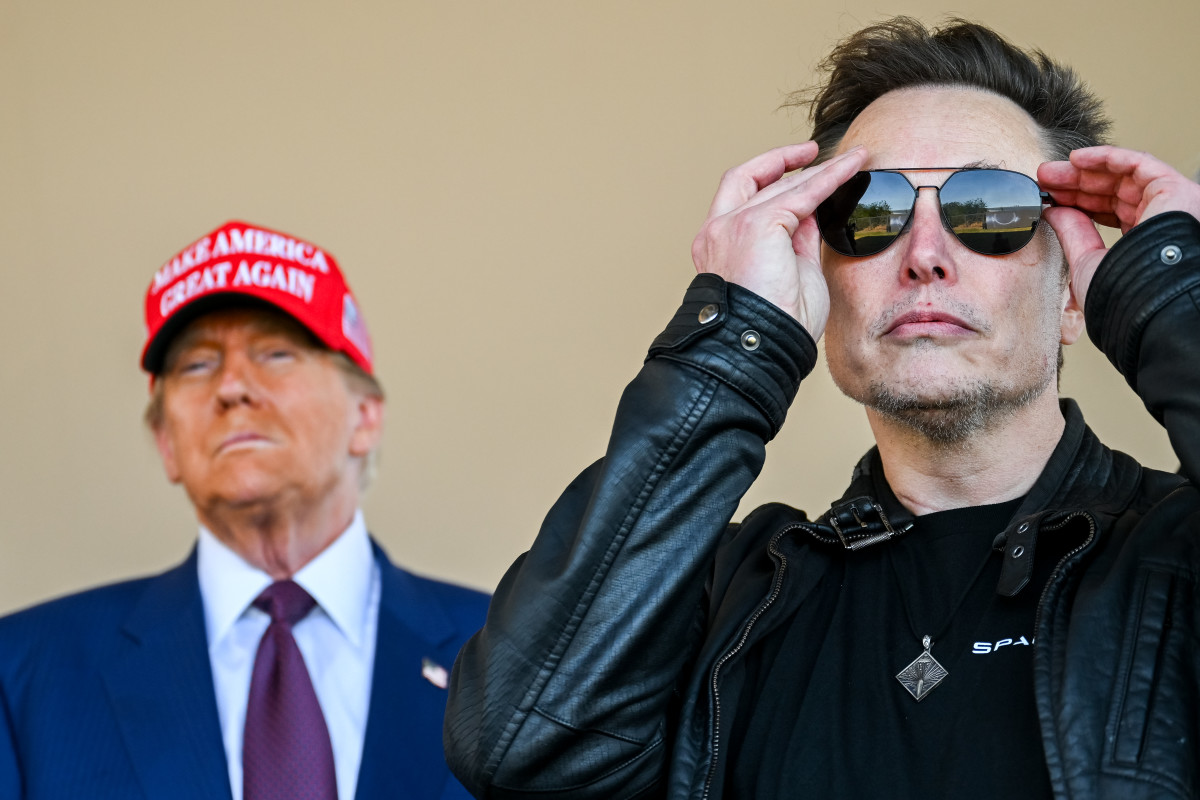
In a recent podcast appearance, New York Times White House correspondent and CNN contributor Maggie Haberman observed that the friendship between President-Elect Donald J. Trump and Elon Musk may be waning, noting that the Tesla (TSLA) CEO has an outsized theoretical and actual physical presence in Trump's orbit.
“Trump does complain a bit to people about how Musk is around a lot,” Haberman said. “He really parked himself in Trump’s face.”
Whether or not the status of the "first buddy" relationship is crumbling, it has helped Musk gain both political power and increase his net worth.
💰💸 Don’t miss the move: SIGN UP for TheStreet’s FREE Daily newsletter 💰💸
Despite rolling over $600 million toward Republican causes during the last election cycle, he is getting his money's worth, as Tesla shares have skyrocketed since Trump's election.
However, one auto executive stands unafraid of Musk and whatever self-driving electric object he could throw at him.
In a recent interview, Hyundai’s (HYMTF) new president and CEO, Jose Munoz, gave some insight as to why Musk's buddy-buddy relationship with the incoming President is good for the giant automaker he controls and for the whole American automotive industry.

Musk and Trump are not a threat to this CEO
In a recent sit-down with Bloomberg, the South Korean automaker's new CEO expressed indifference about Elon Musk’s bromance with Donald Trump. Munoz, who took the helm on January 1, pointed out that Hyundai’s hefty investments in the U.S. are driven by its importance as the company’s top market — not by Biden-era incentives.
Though Elon Musk’s political ties seem to put Tesla at an advantage over its competitors, Munoz expressed a lot of optimism about Musk and Trump’s “first buddy” relationship.
“I’m not worried, honestly,” Munoz told Bloomberg. “If anything, I think having someone who is very close to the U.S. industry and the EV world, I think it should be positive for the industry because I think it is in his own interest and probably is in the interest of the country to trigger investments and growth and also to ensure that we maintain competitiveness in our country vis-a-vis the Chinese and the competitors.”
“So I think that, that is a positive.”
One issue central to the EV conversation is the Trump transition team’s teaser of eliminating the federal EV tax credit early in his new presidential tenure.
In previous statements, Musk has supported eliminating EV tax credits because he thinks Tesla will thrive without it while its rivals will struggle to adapt.
"Take away the subsidies. It will only help Tesla," he said in a July post on X (formerly known as Twitter. "Also, remove subsidies from all industries!"
Take away the subsidies. It will only help Tesla.
— Elon Musk (@elonmusk) July 16, 2024
Also, remove subsidies from all industries!
Currently, a handful of vehicles under the Hyundai Motor Company umbrella are eligible for the $7,500 EV tax credit, including vehicles from Kia, Hyundai and Genesis brands. Prior to 2025, no Hyundai vehicles have been eligible, despite pushing record sales in 2024.
Hyundai's big push toward the U.S. market can be exemplified in its recently opened $5.5 billion EV factory in Georgia. According to Hyundai, it has a 300,000-unit annual capacity and capabilities to expand to 500,000 units. Currently, it produces the Hyundai IONIQ 5, and Hyundai plans to add five more EV models across Hyundai, Kia, and Genesis, as well as hybrid versions of their vehicles.
More Business of EVs:
- Porsche walks back EVs - people still want gas cars
- Donald Trump’s EV stance fuels sales rush for dealers
- Volkswagen's massive issue is a privacy nightmare for EV owners
In light of this, Munoz noted that Hyundai’s big EV push in the States was born during Trump’s first time as president, and was done to help support its biggest market.
“Our company took the decision to make significant investment in the USA during the first Trump administration. We haven’t invested in the U.S. because of IRA or because of incentives in general. It is not a good policy to simply make an investment because of incentives, because they can come and go,” Munoz said.
“We believe the U.S. market is the most important for us today and is going to be the most important in terms of not only the absolute, but also the growth. And therefore, investing and localizing is a good strategy. I think we are in a better place today than we were four or five years ago simply because the investment gives us much more flexibility.”
Related: Donald Trump’s EV stance fuels sales rush for dealers
Hyundai saw record growth in 2024 — without any Federal tax credits
Despite not having any support from the IRA credits that U.S. domestic rivals Ford and General Motors benefit from, Hyundai Motor brands posted record sales gains in 2024 across its electrified lineup.
Hyundai's sister brand, Kia, experienced a huge jump in EV sales in 2024. According to its figures, sales of Kia's diverse range of EVs, such as the compact Niro, the Model Y-rivaling EV6, and the three-row EV9 SUV, saw a 74% increase in 2024, accounting for 7% of its total volume.
“Kia has solidified its leadership position within the EV market,” Kia North America and Kia America president and CEO Sean Yoon said in a statement. “Our strategy is working to further elevate the Kia brand and the potential for sustained growth in the U.S. market.”
Hyundai reported what it called 'record-breaking' December 2024 sales, a feat that Hyundai Motor North America CEO Randy Parker attributed to "offering consumers a variety of product and powertrain options that fit their needs."
Hybrids turned out to be a more appealing product for the brand. In December 2024, EV sales jumped by 13%, while hybrid sales jumped by 79%; led by ballooning sales of models like the Santa Fe HEV (which grew by 87%) and the Tucson HEV (a 133% increase).
Related: Veteran fund manager issues dire S&P 500 warning for 2025







